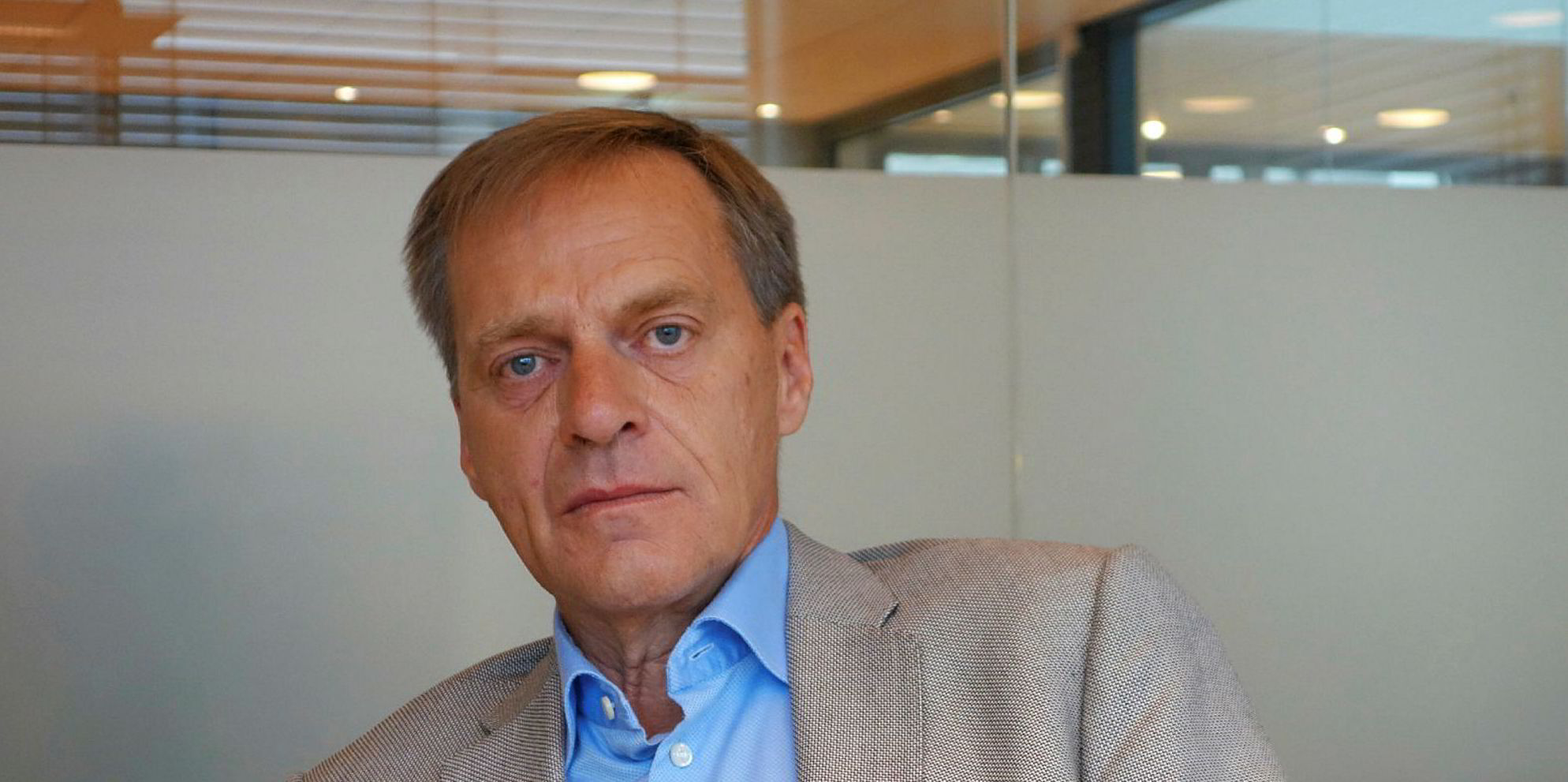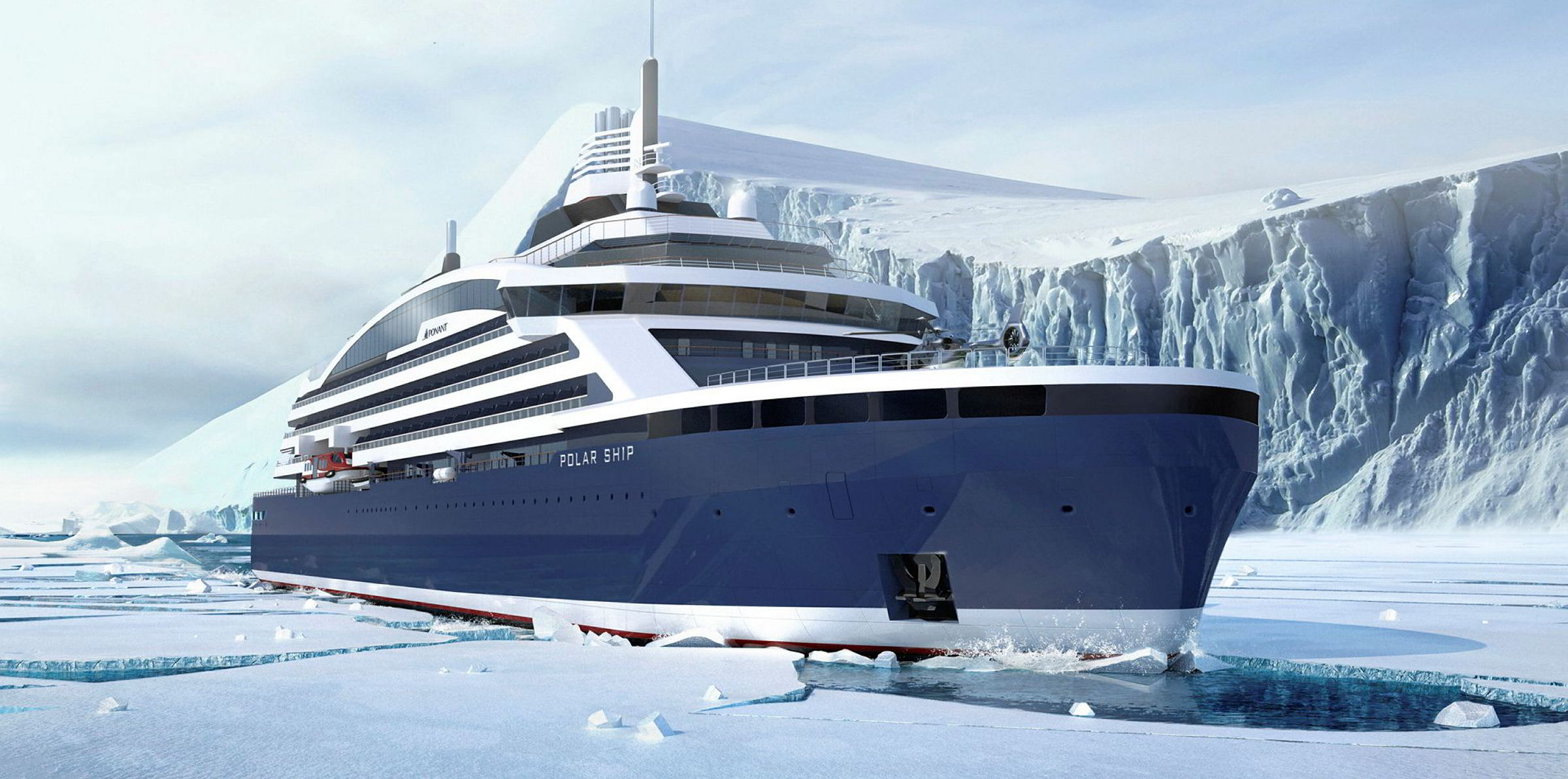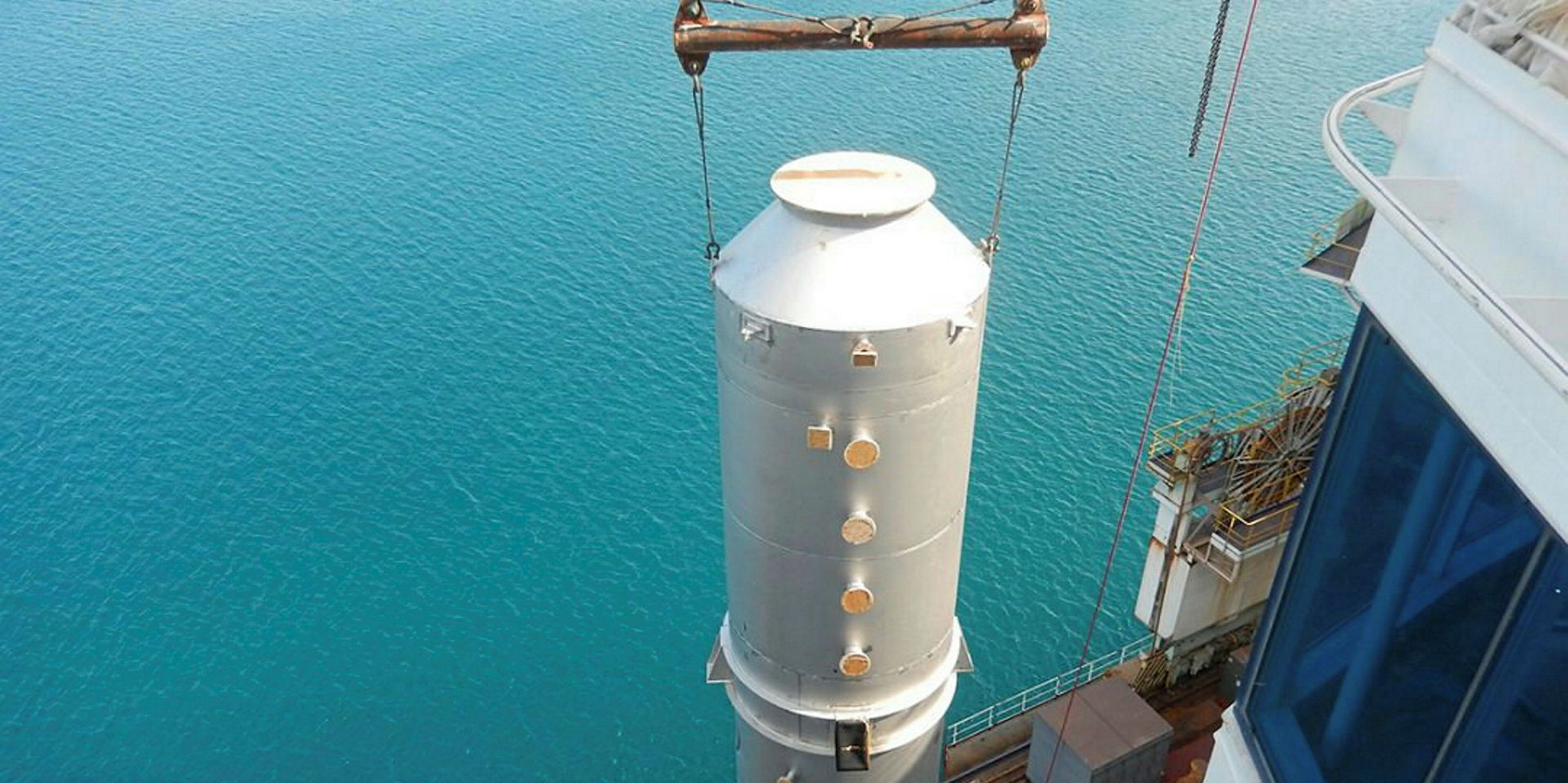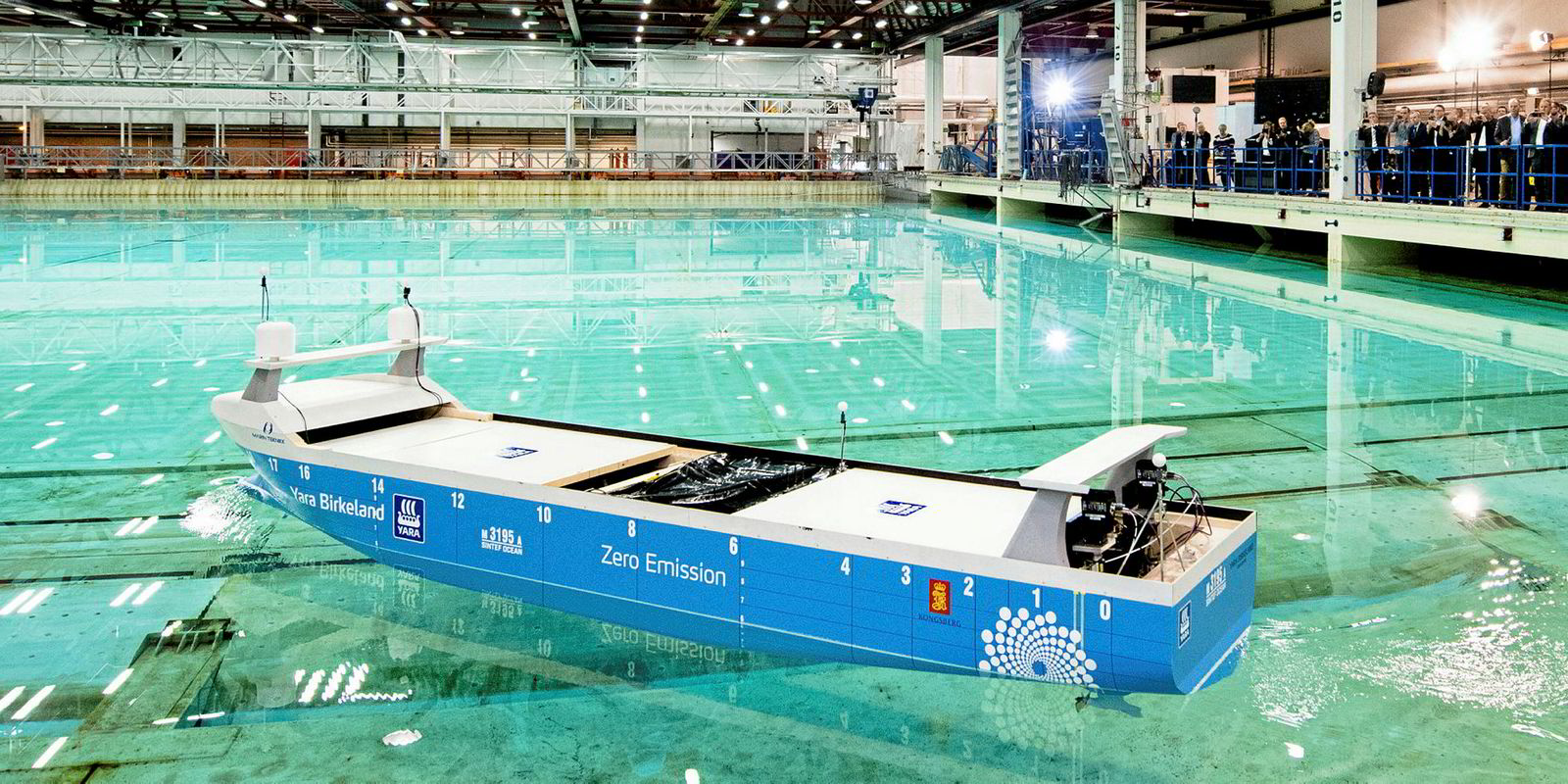Riding high on shipowners’ needs in meeting IMO 2020 regulations, Yara Marine Technologies chief executive Peter Strandberg presents a bullish view on the future of scrubbers.
Parent company Yara International, the Norwegian fertiliser producer, predicted last September that the subsidiary’s revenues would reach NOK 700m ($82m) for the year, and that revenue this year would more than double from the 2018 level.
“We ended up a little better than that,” Strandberg tells TradeWinds. “2018 was a record year; 2019 and 2020 will be similar.”
Order spree
The Oslo-based scrubber maker benefited from an ordering spree last year, when many listed shipowners rushed to buy systems for installation before next year.
All vessels will need to use the more expensive 0.5%-sulphur fuels from January, unless they have scrubbers onboard to allow continued consumption of high-sulphur fuel oil (HSFO).
“It has been a tremendous growth,” Strandberg says. “[Ordering] has been a little bit slower in the first two quarters [of 2019] but we expect this year is going to be the same as last year.”
Following last year’s positive demand “shock”, Yara Marine Technologies and other scrubber makers have expanded their production capacity, according to Strandberg.
“If you order it today, you can get it eight months later,” he says, suggesting owners theoretically can still have scrubbers onboard in the first quarter of 2020 if they move fast.
However, this does not take into account the potential waiting time for dry-docking space.
“I believe the manufacturers have enough production capacity,” Strandberg says. “The bottleneck will be on the shipyard side. Many shipowners are in queue for dry docks.”
Established in 2014 after Yara International acquired Green Tech Marine, Yara Marine Technologies has grown rapidly.
“Every week we hire new people,” chief executive Peter Strandberg says. “Now we have a couple of hundred.”
Yara Marine Technologies will not comment on reports that the parent company is considering a sale of the subsidiary.
Demand for exhaust gas cleaning systems has been driven by the expected wide price spread between IMO 2020-compliant fuels and HSFO. Some market players expect the return period could be less than two years for large ships.
Banned use
However, Singapore, Fujairah and some other ports have banned the use of open-loop scrubbers amid growing concerns over how the wash water — containing sulphates — could affect the marine ecology.
Why do some ports and countries not like open-loop? “Because they don’t have knowledge, or they play ‘better safe than sorry’,” Strandberg says.
Yara Marine Technologies has designed a closed-loop system that can operate for 80 consecutive days. However, this type of unit — suitable for most deepsea trades — would be twice as expensive as open-loop systems when installation costs are included, aside from higher operating costs.
The company also offers hybrid scrubbers, which cost 40% more than open-loop systems.
“It’s quite complicated to install hybrid and closed-loop systems,” Strandberg says. “The equipment takes a lot of space, and the [existing] ships are [generally] not designed to take the equipment.
“For newbuildings — not a problem if they reserve space. For retrofits, it’s completely a different ball game.”
Yara Marine Technologies’ 292 orders include 235 open-loop systems and 46 hybrids, according to DNV GL. However, more owners are asking for open-loop systems to be designed as “hybrid-ready”. These can be converted into hybrid scrubbers at a later stage.
A limited number of studies have been done on scrubbers’ environmental effects. Supporters of the technology can point to the lack of evidence that they pose any harm, while critics would stress that the environmental benefits are equally doubtful.
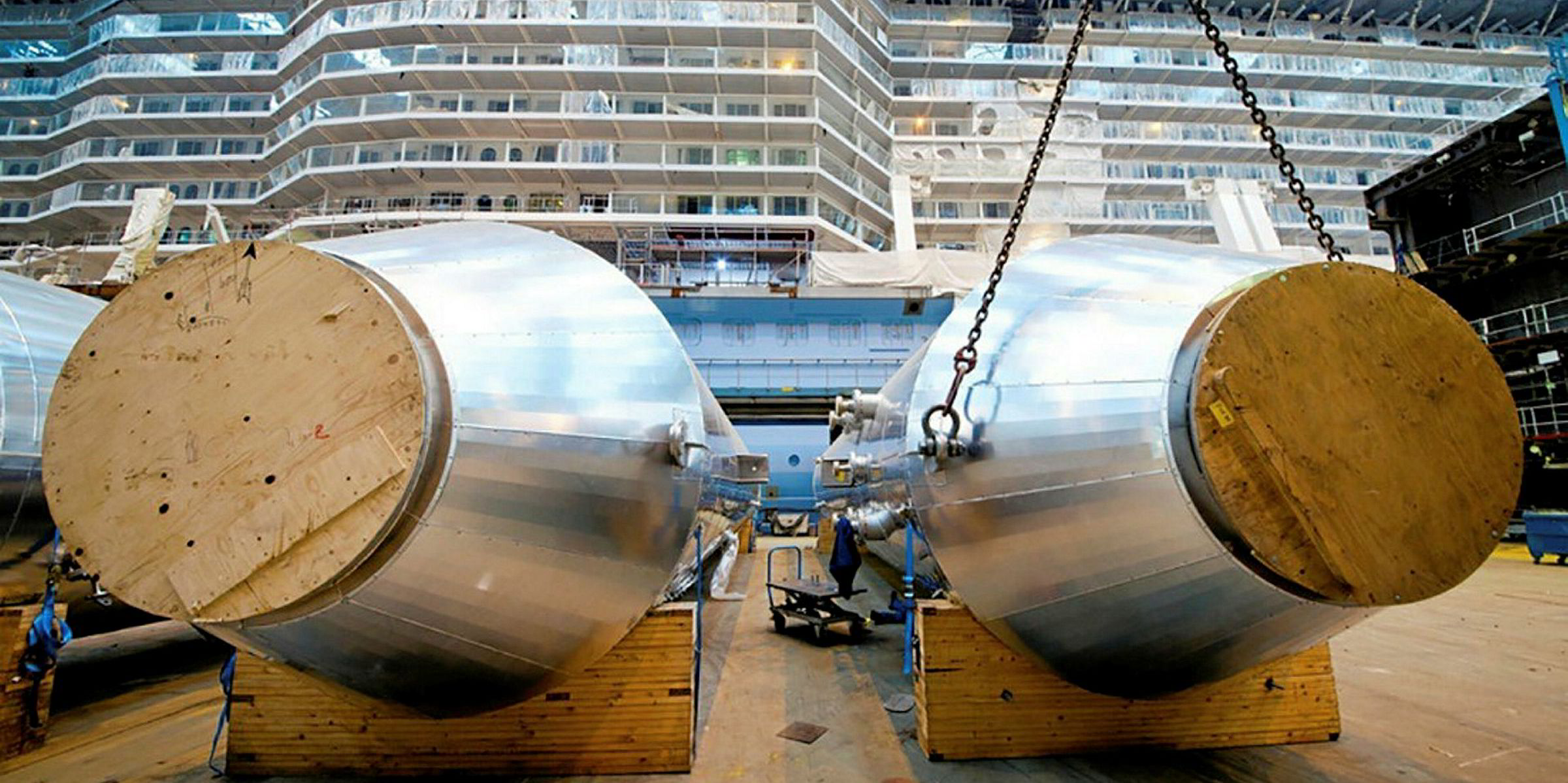
However, Strandberg says scrubbers can reduce the particles from fuel combustion by 60% to 80%. Burning 0.5%-sulphur fuel would reduce large particles, while leaving particles with a diameter of less than 2.5 microns that are “the nasty stuff” to human health, he adds.
“I really hope the public will see this: scrubber [technology] is a better solution than compliant fuels,” he says. “I believe scrubbers will be for many years, from an environmental perspective.”
Global manufacturing
Focused on the engineering side, Yara Marine Technologies contracts the manufacturing to factories in China, the US and other parts of Europe that are closer to the markets.
“We have local representation on all the manufacturing sites ... Our colleagues are represented for the whole time,” Strandberg says.
Faced with increased price competition from new entrants enticed by strong demand for scrubbers, he believes the quality of the Yara product will win out.
“Most important for scrubbers are steel quality and manufacturing process ... When you invest so much money in the product, you must be sure that it lasts,” he adds. “Our scrubber system is functioning very well. It meets all the expectations.”
Where is Yara’s competitive edge against top-tier players such as Wartsila and Alfa Laval?
Strandberg claims his company is more willing to cater to the demand from customers: “We are still a flexible organisation. Our people are flexible, our governance system is flexible.
"We are much more flexible to adjust our products to owners’ requests. From design to delivery, I am talking about the whole range.”
